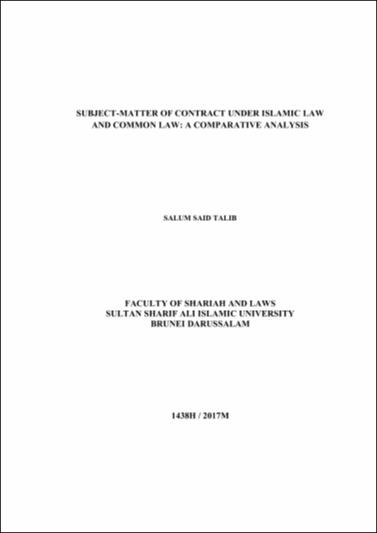| dc.description.abstract | This thesis exhaustively analyses the legal principles and opinions found in Islamic law and Common law pertaining to the subject-matter of contract as an essential element. In considering this element, both legal systems have their own conditions respectively, bearing some similarities and differences. The thesis revolves around various problems such as certainty of subject-matter, ownership, deliverability and purity of the subject-matter of contract under both legal systems. For instance, the subject-matter may be acceptable in Common law whereas unacceptable in Islamic law. The main objective of this thesis is to examine the issue of subject-matter of contract under both legal systems. The thesis adopts a doctrinal research methodology/library based research. As part of the findings, the thesis finds that there are different approaches in terms of forms and conditions of subject-matter of contract under both legal systems. For example, the issue of debt as the subject-matter of contract is a contentious one under both legal systems due the element of usury/riba. As to the recommendations, one of the recommendations put forward in the thesis is that there is a need to relook into the issue of subject-matter of contract in terms of its legality, ownership, certainty, deliverability and purity. Hence, looking at the issue of the certainty of subject-matter of contract, the thesis recommends that if the subject-matter happens to be in form of personal labour provided by one of the parties to a contract, it should not be treated lightly in order to avoid
exploitation. This is inhuman in either formal or informal contract. | en_US |



